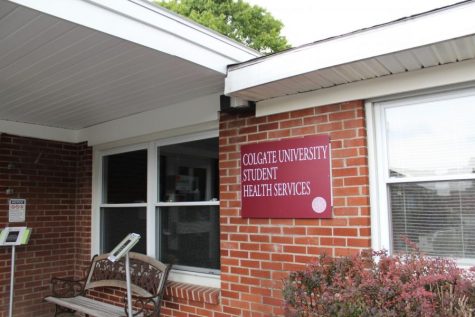Minus the City: The Masturbation Discussion Continues — Erin Voss and Jelly Wink
QTPOC Colgate, along with Haven and the Medusa Movement, have put together a five-part Queer Sex Education and Consent Workshop series in hopes of educating and spreading awareness on topics surrounding queer sex, sexual health, sex positivity, sexual empowerment for BIPOC and in-general, a lot of things we’ve been lacking from our sex education. On Thursday, March 18, the first seession of the workship series centered around topics of self pleasure and empowerment, led by Erin Voss, the owner of a queer-friendly sex toy shop in Tuscon, Arizona named Jellywink. The shop opened in the summer of 2019, and since its foundation has been devoted to providing a safe environment for people of all identities, races, sexual orientations and sizes to explore their fantasies, kinks and other sexual pleasures. Voss’s vision is not limited to all-inclusive sex toys, however. She goes beyond this as she assumes the role of educator, providing workshops that explore sexual topics that are far more comprehensive than the sex ed we learn in school. It’s unlikely that queer, and trans students of color have experienced a form of sex ed that included any form of LGBT representation. It is Voss’s mission to turn this around.
Voss spoke to 30-40 Colgate students, most of whom identified as QTPOC (queer or trans people of color), queer folx and/or BIPOC, creating a BIPOC and survivor-centric space. Immediately after logging on to the Zoom meeting there was just an instant sense of lightheartedness and fun. Voss was bold and full of spunk, and made everyone feel comfortable almost immediately. What I appreciated about this workshop from the beginning, that I felt was missing in Afrosexology’s workshop on March 9, was the mention of sexual experimentation as children — that most of us discover self-pleasure whilst in our single-digit years. This is extremely important given that this is enough to speak to how truly natural masturbation is, as those who have not yet been sexually awakened have the capacity to understand that “if I touch myself, it will make me feel good.” Some may have experienced their first moments of masturbation shame as a young child, being walked in on by a parent who subsequently scolds them as what they’re doing is “dirty” and “sinful.” Soon, Voss explains, masturbation shame may come as a result of societal standards of beauty. Mainstream media creates a standard of beauty and sensuality that is narrow, pushing queer folx, BIPOCs and trans folx to the margins, which in turn affects the way they think they deserve sex, if at all. Masturbation is therefore an act of resistance, Voss says. It is one of the ways in which we can unlearn these internalized sentiments that may stem from societal constructs and sexual trauma.
After a small debriefing activity in which we shared with each other how our identities have affected our experiences with pleasure, Voss made it clear that sex is not just something we do with other people. Masturbation as a form of sex allows us to not “settle” for mediocre partners or situations in which our pleasure is not prioritized. She brings this point home by asking if any of us has ever faked an orgasm, to which most responded “yes!” Then she asked if we had ever faked an orgasm alone to which everyone responded “never.” Solo sex is the only form of sex where your pleasure is ensured, and it also raises your expectations of how you experience pleasure with other partners, since you already know what you like.
Jumping off this revelatory line of questioning, Voss explains that masturbation is a tool for self empowerment, allowing you to reclaim your sexuality and your autonomy after negative sexual experiences. Masturbation is the only form of sex where your safety is ensured, and erotic pleasure can occur in a safe environment. So self-pleasure, Voss says, is a great form of loving yourself after any sort of sexual trauma. She went on to provide some orienting or grounding techniques to practice during masturbation when triggers start to arise. Positive affirmations are key when learning to unlearn. I am safe. I deserve pleasure.
Masturbation also empowers you to set boundaries, and to practice a more communicative sex. Because at the end of the day, “your pleasure is your responsibility” Voss emphasized. Partners aren’t mind readers, and not everybody likes the same thing. Therefore, being good in bed is not really a thing either. Being “good in bed,” instead has everything to do with how good you are at communicating, given that consent requires communication. Customizing your performance to fit the desires that your partner has communicated is what makes good sex, Voss explains. She then went on to give some great pointers on how to properly and efficiently communicate these desires; a conversation she says starts with sharing triggers.
Finally, the workshop wrapped up with a dialogue about self pleasure tools because what is a masturbation conversation without talk of sex toys? Voss had everyone fill out a survey that matched us with the sex toy that would best fulfill our sexual desires. She then went through each toy, showing us what each looked like, what they are used for, how to use them and why they work. As with the rest of the workshop, Voss showed us what really good, healthy sex talk looked like. Lighthearted, fun and educated, but also blunt and straight to the point, using slang terms and other language we were all familiar with. Voss created an environment where, despite all our differences, we became equal because we were united under the same love of self pleasure.










